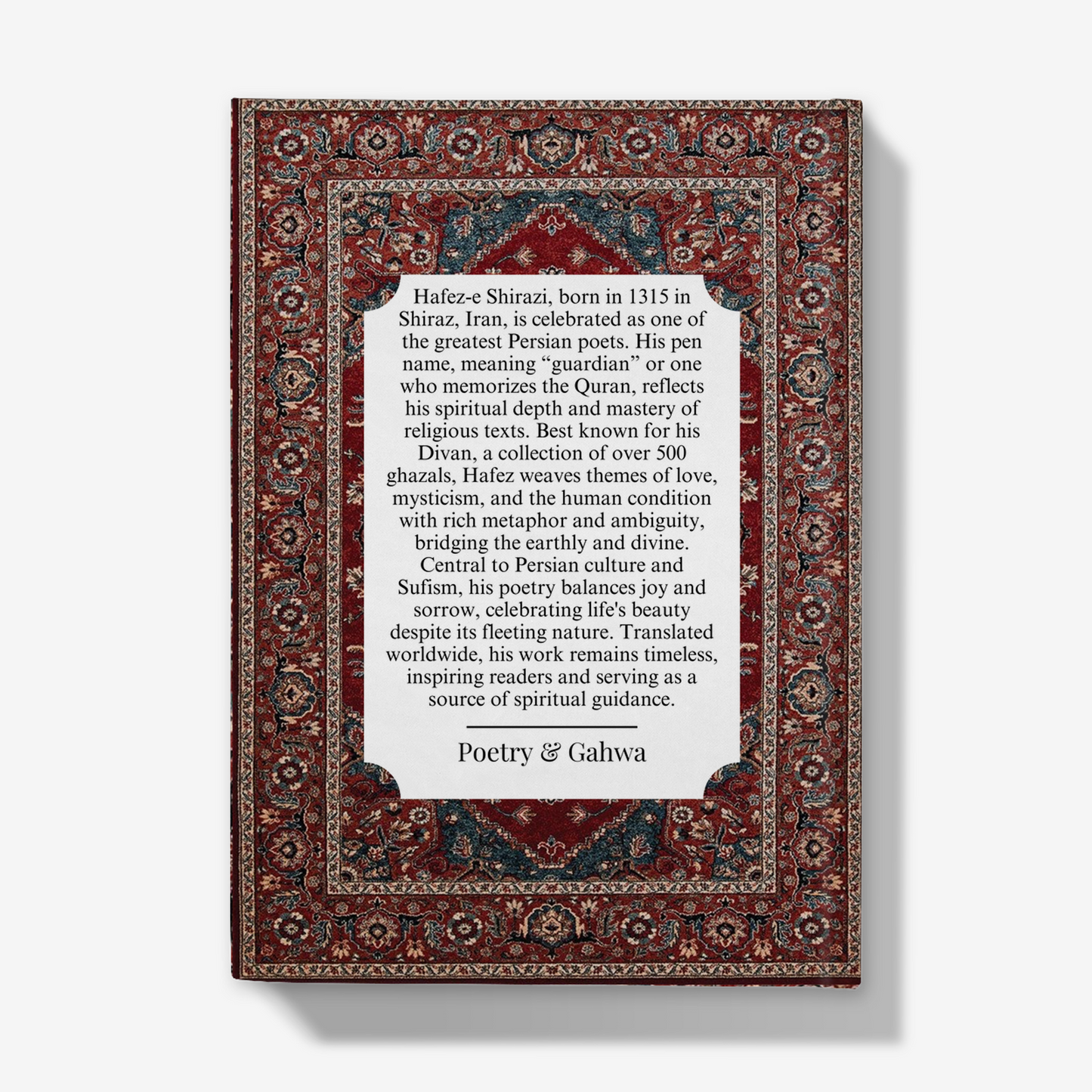Poetry & Gahwa
Hafez: 'For I have learned that every heart gets What it prays for most' Journal
Hafez: 'For I have learned that every heart gets What it prays for most' Journal
Couldn't load pickup availability
'For I have learned that every heart gets What it prays for most'
~Hafez
Experience the art of writing with the Hafez Journal, a timeless companion for those who cherish the elegance of thoughtful design.
Available in a convenient 5 x 7” format, this journal offers a robust 260gsm hardback cover with a chipboard construction and refined vinyl laminate finish, providing unmatched durability and sophistication.
Inside, 128 pages of premium 90gsm paper await your every word, idea, or sketch.
Choose from ruled, graph, or blank pages to best suit your unique creative pursuits.
With full-bleed print on the front and back covers, the Ibn Sina Journal is crafted to inspire and elevate your writing experience.
Whether for journaling, note-taking, or artistic exploration, this journal transforms the simple act of writing into an art form.
ABOUT HAFEZ
Hafez-e Shirazi, widely regarded as one of the greatest Persian poets, was born in 1315 in the city of Shiraz, Iran. His pen name “Hafez” refers to someone who has memorized the Quran, a reflection of his deep spiritual roots and command of religious texts. He is best known for his Divan, a collection of over 500 ghazals (lyric poems) that explore themes of love, mysticism, and human existence, often merging the secular with the spiritual. Hafez’s mastery of metaphor, allegory, and symbolism created poetry that resonates with both the everyday person and the spiritual seeker. His language is rich in ambiguity, allowing for multiple interpretations, and as such, his work became central to Persian culture, influencing not just literature but also philosophy and mysticism, particularly within Sufism.
Hafez’s poetry continues to have a profound impact on Persian and global literary traditions. His verses reflect a delicate balance between joy and sorrow, earthly and divine love, and the complexities of the human condition. The themes of unity with the divine and the celebration of life’s beauty despite its transience make his poetry timeless. His work has been translated into many languages, gaining international acclaim, and is often consulted for guidance, particularly in Iran, where fal-e Hafez (Hafez divination) is a common practice, with people opening his Divan at random to find answers to personal questions. Hafez’s legacy endures, symbolizing the beauty and depth of Persian literary culture and its spiritual dimensions.



